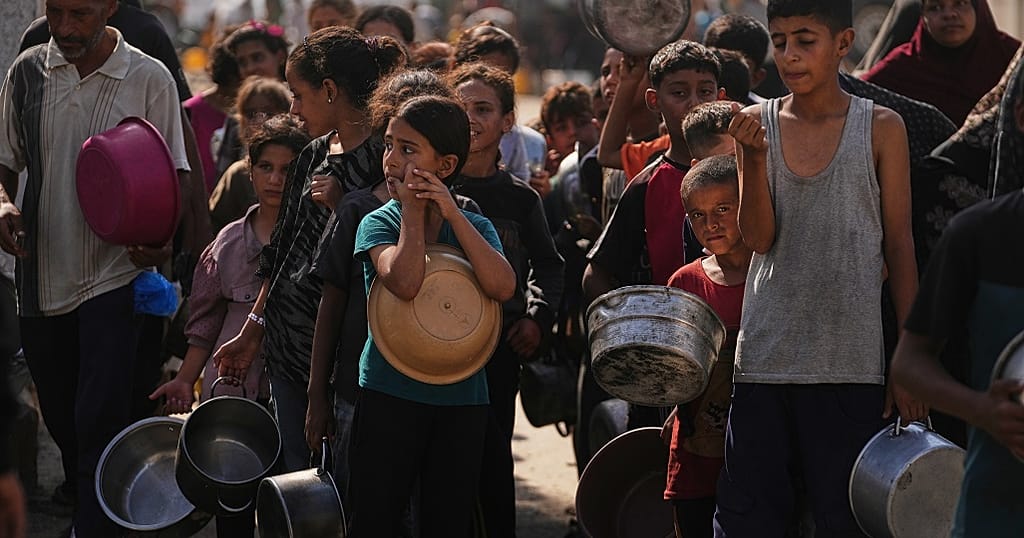In the aftermath of the recent conflict, the Nuseirat refugee camp in Gaza is facing a new challenge: a severe economic crisis that is leaving many without access to basic necessities. Despite a ceasefire halting the violence, the economic struggles of the population persist, with many relying on charity kitchens for their only guaranteed meal of the day.
The situation on the ground is dire, with long lines of people, mostly children, waiting to receive a simple meal of rice from a communal pot. This stark reality highlights the devastating impact of the economic crisis, which has become a persistent threat to the well-being of the population. According to Mohamed al-Naqlah, a resident of the camp, “the increasing living costs have been the hardest weapon used against us,” as many families have been left without income or employment.
For many, the charity kitchens are not a temporary solution, but a vital lifeline. Mohamed Jedely, a father of three, relies on these kitchens to feed his family, stating that “there is currently no other alternative” due to the soaring market prices for food and essentials. The struggle is evident on the faces of the children, who walk away with their filled pots, their expressions marked by exhaustion and despair.
The international community has provided some humanitarian aid to the Gaza Strip since the truce took effect, but the amount of aid reaching the territory falls short of the overwhelming need. As a result, communities are left perilously dependent on the kindness of others for their next meal. The United Nations and other humanitarian organizations have warned of a looming food crisis, emphasizing the need for sustained support to address the underlying causes of poverty and unemployment.
The economic crisis in Gaza is a complex issue, rooted in years of conflict, blockade, and restrictions on movement and trade. The recent violence has only exacerbated the situation, leaving many without access to basic services, including healthcare and education. As the international community continues to respond to the crisis, it is essential to address the underlying causes of poverty and unemployment, providing sustainable solutions to support the recovery and development of the Gaza Strip.
